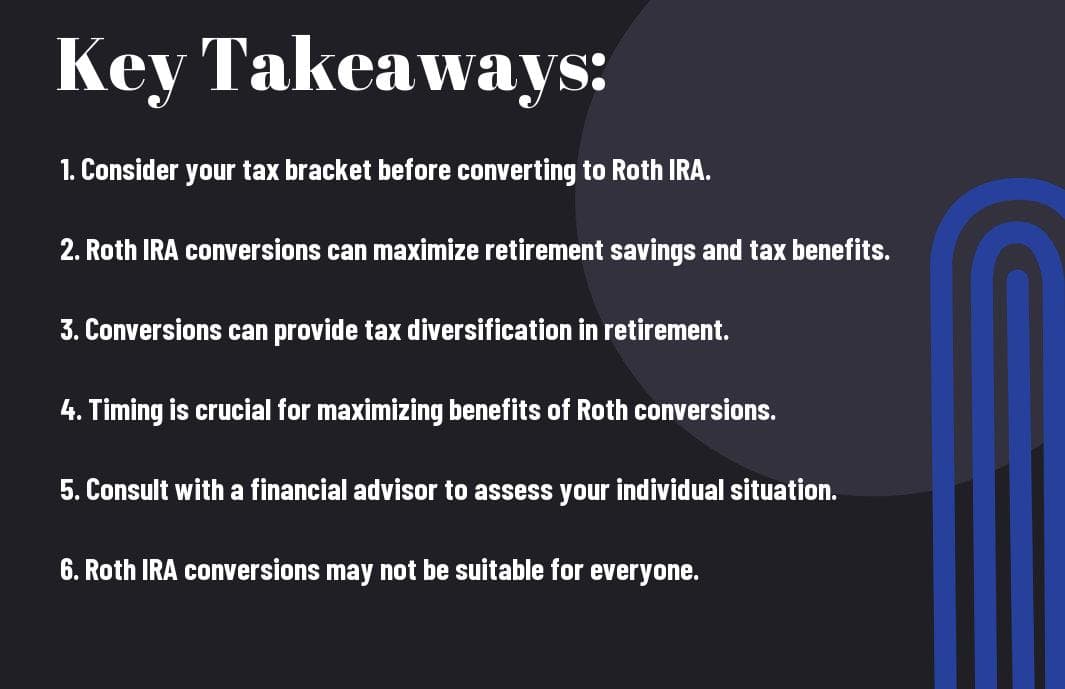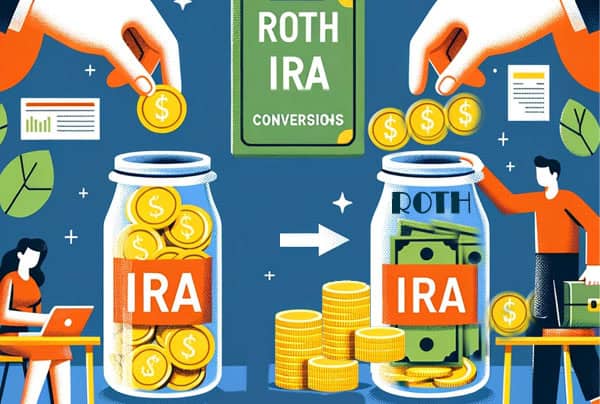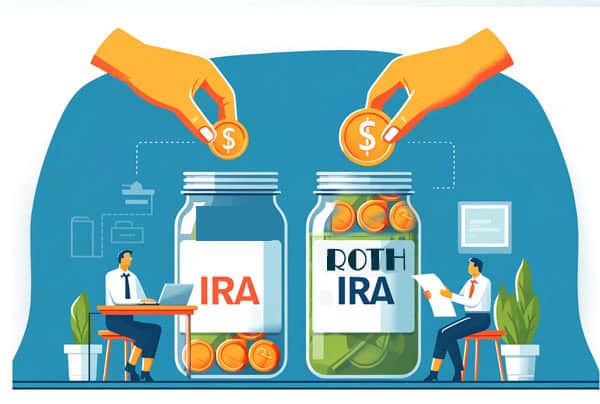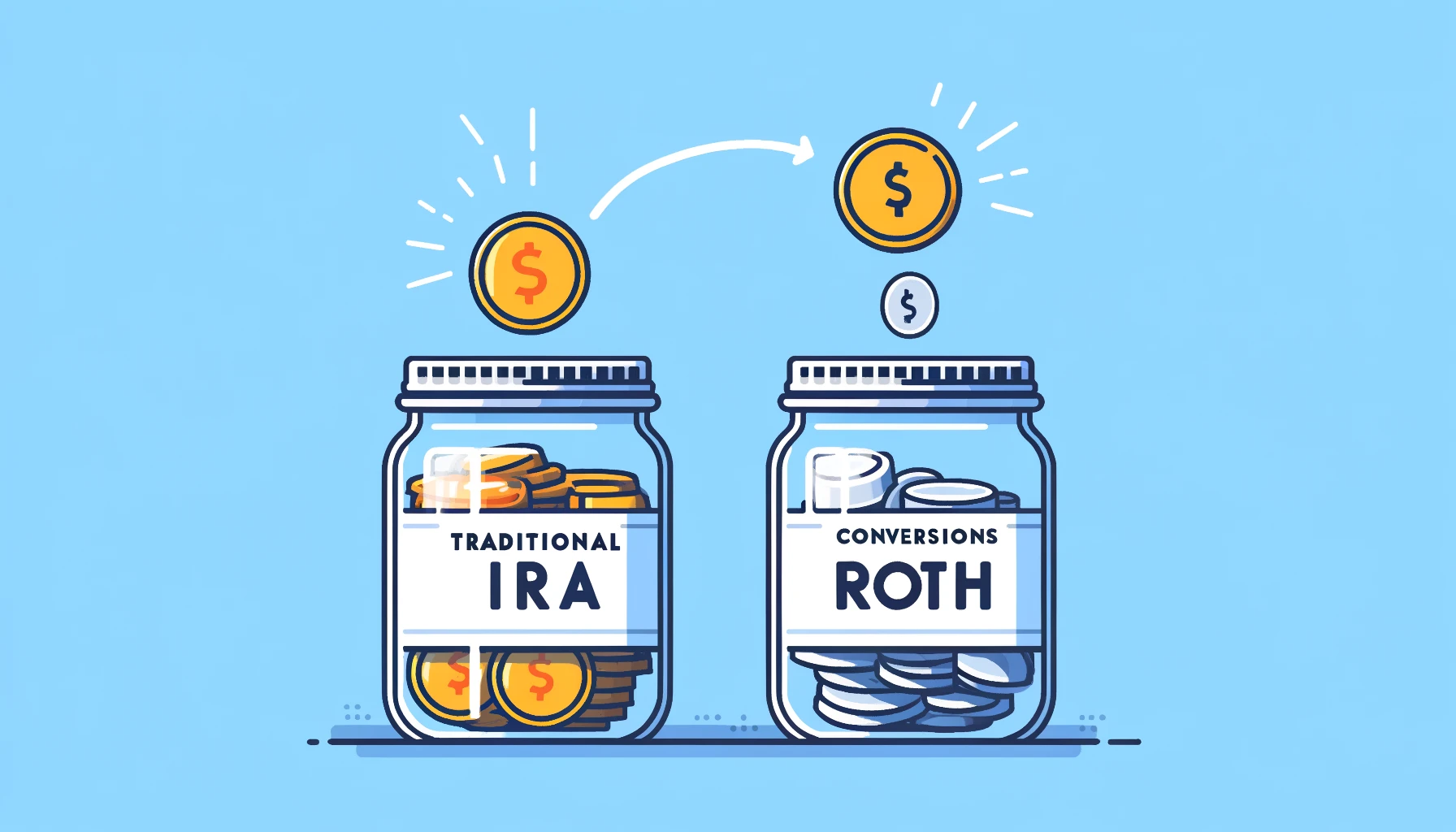There’s a crucial debate in retirement planning – Roth IRA conversions. Understanding if this strategy benefits your financial future is important. Let’s investigate into the potential risks and rewards associated with this savvy move and determine if it aligns with your overall retirement goals. Stay informed to make the best decisions for your golden years!
Key Takeaways:
- Roth IRA Conversions can be a smart strategy for retirement planning: Converting a Traditional IRA to a Roth IRA can provide tax-free withdrawals in retirement, offering flexibility to manage your tax liability.
- Consider your current and future tax situation: Evaluate your tax bracket now and in retirement to determine if a Roth IRA conversion makes sense for you. Consult with a financial advisor if needed.
- Timing is crucial: Converting to a Roth IRA may have tax implications, so it is important to understand the impact on your finances and plan accordingly to maximize the benefits of this strategy.

What is a Roth IRA Conversion?
Definition and Purpose
For those looking to boost their retirement savings, a Roth IRA conversion can be a strategic financial move. A Roth IRA conversion involves transferring funds from a Traditional IRA or a 401(k) into a Roth IRA. The main purpose of this conversion is to take advantage of the tax benefits that a Roth IRA offers, such as tax-free growth and tax-free withdrawals in retirement.
How it Works
The process of a Roth IRA conversion is relatively straightforward. With a traditional IRA or 401(k), contributions are made with pre-tax dollars, and withdrawals in retirement are taxed as ordinary income. By converting these funds into a Roth IRA, you pay taxes on the amount converted upfront, but the money grows tax-free and withdrawals in retirement are tax-free as well. This can be advantageous for individuals who expect to be in a higher tax bracket in retirement or for those looking to leave a tax-free inheritance for their heirs.

Benefits of Roth IRA Conversions
Tax-Free Growth and Withdrawals
Assuming you’ve had a traditional IRA or 401(k) for a while, you might be looking for ways to maximize your retirement savings. One strategy to consider is converting these accounts into a Roth IRA. Conversions to a Roth IRA can provide you with tax-free growth and withdrawals in retirement. Since Roth IRAs are funded with after-tax dollars, any earnings have the potential to grow tax-free as long as certain conditions are met.
Increased Flexibility in Retirement
Flexibility is a key advantage of Roth IRA conversions. By converting a traditional retirement account to a Roth, you gain more control over when and how you withdraw funds in retirement. Unlike traditional IRAs that have Required Minimum Distributions (RMDs) starting at age 72, Roth IRAs have no RMDs, allowing you to leave the money in the account to grow tax-free for as long as you wish.
Understanding the flexibility that a Roth IRA conversion can offer can be a game-changer in your retirement planning. It allows you to tailor your retirement income strategy to your specific needs, giving you more options to manage your tax liability and leave a financial legacy for your loved ones.
No Required Minimum Distributions (RMDs)
Tax-Free growth and withdrawals in a Roth IRA can give you peace of mind knowing that you won’t be forced to take money out of your account at a certain age. With traditional retirement accounts, you must start taking RMDs at age 72, which can impact your tax situation and retirement income strategy.
Required Minimum Distributions can sometimes push retirees into higher tax brackets and reduce the amount of money available for their use. By converting to a Roth IRA, you eliminate this requirement and maintain more control over your retirement funds.
Who Can Benefit from Roth IRA Conversions?
To reduce taxes on Roth IRA conversions, various individuals can benefit from this strategy, depending on their financial circumstances and retirement goals.
High-Income Earners
High-income earners looking to lower their tax liabilities in retirement can benefit from Roth IRA conversions. By strategically converting a portion of their traditional IRA funds to a Roth IRA, they can potentially reduce future tax burdens. Implementing 3 Strategies for Reducing Roth IRA Conversion Taxes can help maximize the benefits of this conversion strategy.
Those with Large Traditional IRA Balances
Those with significant traditional IRA balances may find Roth IRA conversions advantageous. Converting a portion of these funds to a Roth IRA can diversify their retirement income sources and potentially reduce future Required Minimum Distributions (RMDs). This strategic move can also help in managing tax implications in retirement.
Individuals with large traditional IRA balances should consider the long-term benefits of Roth IRA conversions, such as tax-free withdrawals in retirement and the potential to pass on a tax-free inheritance to their beneficiaries.
Individuals with Low Income in Retirement
On the other end of the spectrum, individuals with low income in retirement can benefit from Roth IRA conversions by paying taxes on the converted amount at a lower tax rate compared to their peak earning years. This can provide them with tax diversification in retirement and potentially reduce their tax burden in the long run.
With careful planning and consideration of their financial situation, individuals with low income in retirement can strategically convert traditional IRA funds to Roth IRAs, setting themselves up for a more tax-efficient retirement.
Potential Drawbacks of Roth IRA Conversions
Immediate Tax Liability
Once again, while Roth IRA conversions offer long-term tax benefits, one of the main drawbacks is the immediate tax liability that comes with converting a traditional IRA or 401(k) to a Roth IRA. When you convert, you will owe income taxes on the amount you convert in the year of the conversion. This tax liability can be substantial, especially if you have a large retirement account.
Potential Impact on Medicare Premiums
Any increase in your income, including from a Roth IRA conversion, can potentially affect your Medicare premiums. Medicare uses your modified adjusted gross income (MAGI) from two years prior to determine your premiums. If a Roth IRA conversion significantly raises your income in that two-year period, you could see an increase in your Medicare Part B and Part D premiums.
For instance, if your MAGI exceeds certain thresholds, you may have to pay an Income-Related Monthly Adjustment Amount (IRMAA) on top of your standard Medicare premiums. This additional cost could erode some of the tax benefits you were hoping to achieve through the Roth IRA conversion.
Complexities in Conversion Process
To convert a traditional IRA to a Roth IRA, you must follow specific rules and timelines set by the IRS. This process can be complex and confusing, especially if you have multiple retirement accounts or if you are unsure about the tax implications of the conversion. Plus, if you make a mistake during the conversion process, it could result in additional taxes, penalties, and fees.
Plus, it’s crucial to consider how a Roth IRA conversion fits into your overall financial plan and retirement strategy. While the benefits of tax-free withdrawals in retirement can be appealing, it’s important to weigh these potential drawbacks and consult with a financial advisor or tax professional before making a decision.
Strategies for Roth IRA Conversions
After Roth IRA conversion | What to know before converting, there are a few strategies you can consider when it comes to optimizing your retirement planning.
Partial Conversions
The flexibility of Roth IRA conversions allows for partial conversions, where you can convert only a portion of your traditional IRA or 401(k) to a Roth IRA. This strategy can be beneficial if you want to manage tax implications and stay within a certain tax bracket. It also allows you to gradually shift funds into a Roth account over time, spreading out the tax burden.
Conversion Laddering
Conversions laddering involves converting different amounts from traditional accounts to Roth accounts over several years to manage tax brackets and create a tax-efficient income stream in retirement. For instance, you can strategically convert amounts that keep you in lower tax brackets each year, maximizing the benefits of tax diversification.
Coordinating with Other Retirement Accounts
Strategies such as coordinating Roth IRA conversions with other retirement accounts like 401(k)s or pensions can help optimize your overall tax situation and retirement income. It is important to consider how Roth conversions may affect your other retirement savings and how they can work together to create a comprehensive retirement strategy.

When to Consider a Roth IRA Conversion
Not sure when to consider a Roth IRA conversion? It’s necessary to weigh the pros and cons based on your financial situation. Roth IRA Conversion: Everything You Need To Know can help you make an informed decision.
During Market Downturns
Downturns can present an opportunity for a Roth IRA conversion. When the market is down, your investments are valued lower, meaning you’ll owe less in taxes if you convert a traditional IRA to a Roth. This strategy allows you to capitalize on the lower tax bill and potentially see tax-free growth when the market recovers.
In Low-Income Years
Conversion to a Roth IRA can be advantageous during low-income years when your tax bracket is lower than usual. This can enable you to convert a portion of your traditional IRA at a lower tax rate, reducing your tax liability in the long run. Additionally, if you expect your income to increase in the future, converting to a Roth now can lock in a lower tax rate.
For instance, if you plan to take a sabbatical, start a business, or simply have a year with lower income, this could be an ideal time to consider a Roth IRA conversion. By taking advantage of your lower tax bracket, you can set yourself up for tax-free income in retirement. It’s a strategic move that can benefit your long-term financial plan.
Before Retirement
Retirement is a critical time to evaluate whether a Roth IRA conversion makes sense for you. By converting a portion of your traditional IRA to a Roth before retirement, you can manage your tax liability in retirement effectively. This strategy can provide tax diversification in your retirement accounts, giving you flexibility to withdraw funds in a tax-efficient manner during retirement years.
Years before retirement, it’s wise to consider your income trajectory, tax implications, and long-term financial goals. A Roth IRA conversion can be a strategic move to optimize your retirement savings and minimize taxes in the future. Consulting with a financial advisor can help you navigate the complexities of Roth IRA conversions and make sound decisions tailored to your unique financial situation.
Conclusion
With these considerations in mind, it is clear that Roth IRA conversions can be a smart strategy for retirement planning. By strategically converting traditional IRA funds to a Roth IRA, individuals can potentially minimize their tax burden in retirement and take advantage of tax-free withdrawals. However, it is vital to carefully evaluate individual financial situations, future tax implications, and long-term retirement goals before making any decisions regarding Roth IRA conversions.
Ultimately, consulting with a financial advisor or tax professional can help individuals make informed decisions about Roth IRA conversions and ensure that they align with their overall retirement planning strategy. By weighing the potential benefits and drawbacks of Roth IRA conversions, individuals can take proactive steps towards securing a comfortable and financially stable retirement.
FAQ
Q: What is a Roth IRA conversion?
A: A Roth IRA conversion is the process of moving funds from a Traditional IRA or 401(k) into a Roth IRA. This conversion results in paying taxes on the amount converted, but offers tax-free growth and withdrawals in retirement.
Q: Are Roth IRA conversions a smart strategy for retirement planning?
A: Roth IRA conversions can be a smart strategy for retirement planning, as they allow you to potentially reduce your tax burden in retirement and have tax-free withdrawals. However, it’s necessary to consider your individual financial situation and consult with a financial advisor to determine if it’s the right move for you.
Q: Who is eligible to do a Roth IRA conversion?
A: Anyone, regardless of income level, can do a Roth IRA conversion. There are no income limits for converting a Traditional IRA or 401(k) into a Roth IRA. However, keep in mind that you will have to pay taxes on the amount converted.
Q: When is the best time to do a Roth IRA conversion?
A: The best time to do a Roth IRA conversion depends on your individual financial circumstances. Some people choose to do a conversion when they are in a lower tax bracket, such as early in retirement or during a year with lower income. However, it’s crucial to consider factors like taxes, future income, and retirement goals before making a decision.
Q: What are the potential benefits of a Roth IRA conversion?
A: Some potential benefits of a Roth IRA conversion include tax-free growth and withdrawals in retirement, potential tax savings in the long run, and the ability to leave a tax-free inheritance for your beneficiaries. Additionally, converting to a Roth IRA can provide you with more control over your retirement income and taxes.

